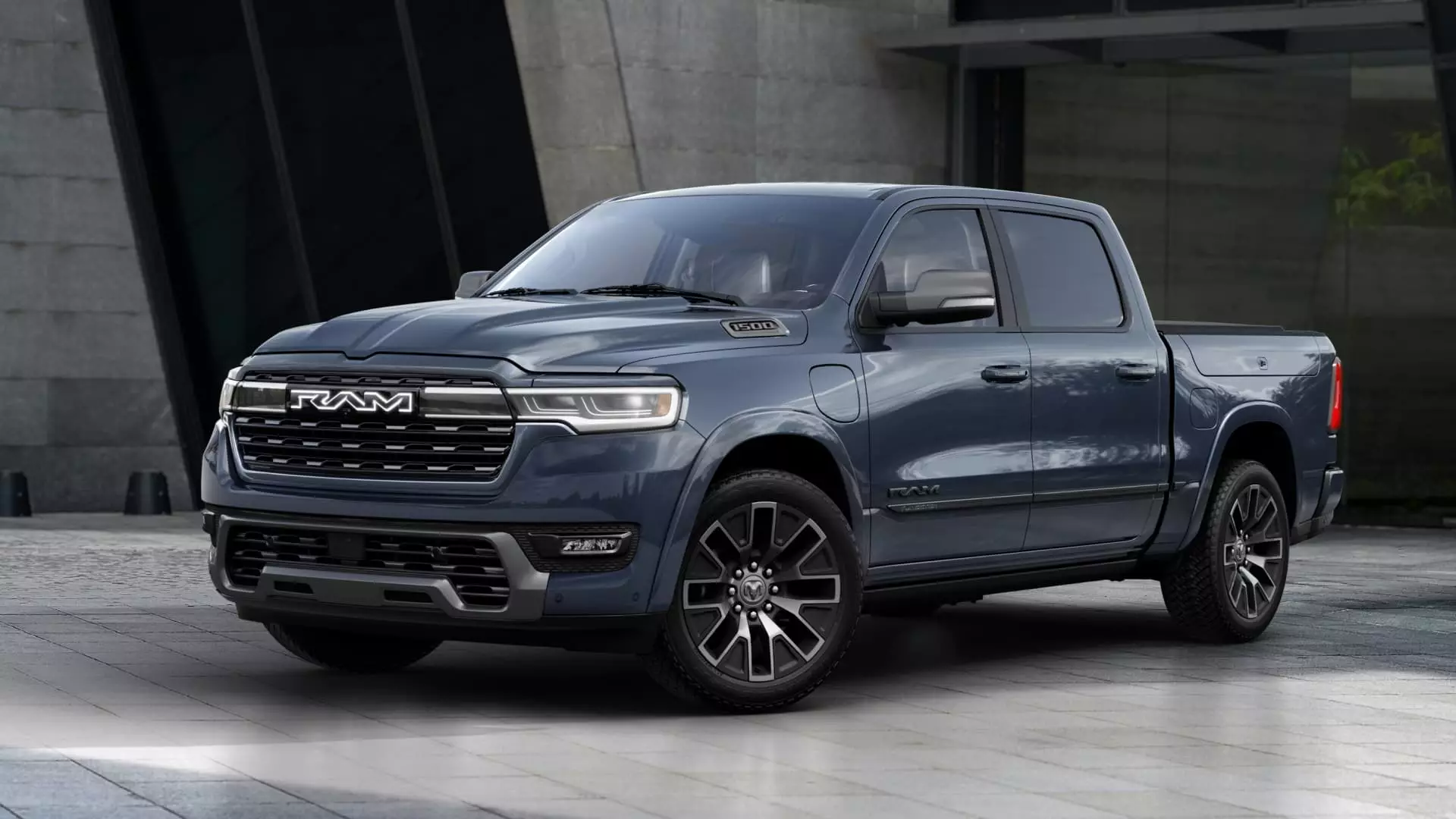In a significant announcement, Stellantis revealed that the launch of its all-electric Ram pickup truck has been pushed back from 2025 to 2026. This delay highlights the ongoing challenges facing the electric vehicle (EV) market. As automakers grapple with slow consumer adoption and a complex competitive landscape, Stellantis aims to recalibrate its strategy to better align with current market dynamics. The automotive giant’s decision reflects a growing concern over profitability and technological advancements in the electric truck segment, where competitors are still struggling to find a sustainable business model.
In light of these challenges, Stellantis is shifting its focus to the Ramcharger, an electric range-extended version of the pickup that integrates a gasoline engine with electric technology. This approach seems to be a response to robust consumer demand for options that provide flexibility and extended range. By 2025, Stellantis plans to accept orders for the Ramcharger, positioning it as a more immediate solution while the full battery-electric model undergoes further development. The Ramcharger promises to offer an intriguing solution: it can operate as a zero-emission vehicle until its battery depletes, at which point a gasoline engine kicks in to extend the driving range, potentially reaching up to 690 miles.
This strategic pivot from Stellantis emerges amid leadership changes, particularly with Ram CEO Tim Kuniskis rejoining the company after a brief retirement. His return coincides with a management shake-up that has shaken up the corporate hierarchy. Kuniskis has indicated that he intends to implement significant changes to revitalize the brand. With a reported 24% drop in sales for Ram through the third quarter, he acknowledges that the prevailing issues stem from delayed product rollouts and market recalibrations. His candid approach signals a willingness to adapt and innovate in a rapidly evolving market landscape, repeatedly asserting, “we’ve got a lot of work to do.”
Market Implications and Competitive Advantage
Stellantis’s decision to delay the all-electric model reflects broader industry trends as manufacturers reevaluate their electric strategies to maintain profitability. As automakers invest heavily in EV development, there’s fierce competition not only for consumer interest but also to leverage technological advancements effectively. The Ramcharger could serve as a critical differentiator in this crowded market, combining traditional power with electric capabilities to offer consumers a versatile pickup truck experience. By prioritizing the Ramcharger, Stellantis hopes to maintain a competitive edge while adapting to industry fluctuations.
Ultimately, Stellantis is navigating a challenging automotive landscape marked by uncertainty and evolving consumer preferences. The delay of the fully electric Ram pickup offers a poignant reminder of the complexities within the EV sector, emphasizing the need for innovative solutions like the Ramcharger. As Ram positions itself for the future, this shift underscores the importance of agility and responsiveness in a rapidly changing market, where success hinges on understanding and addressing consumer demands while ensuring sustainable profitability. Stellantis’s ability to adapt its strategy may play a pivotal role in its long-term success within the competitive electric truck arena.


Leave a Reply